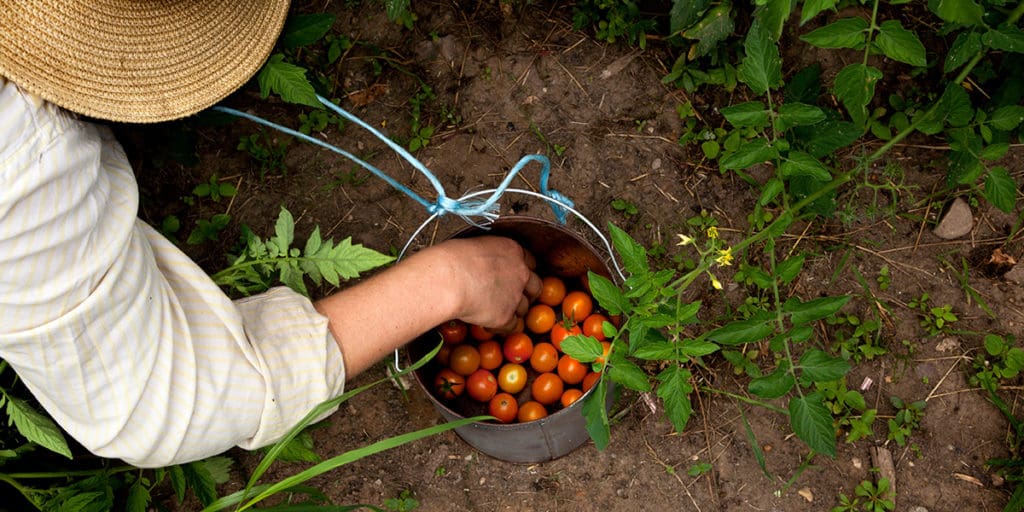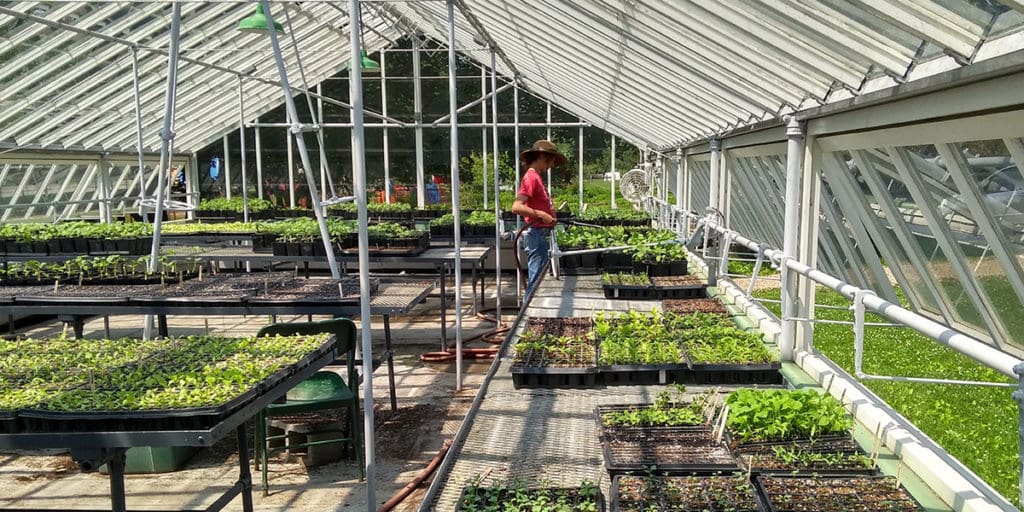Queens Farm is always learning, observing, and thinking outside the box to see how we can use our land to grow more food! Queens Farm grows 200 varieties of crops in our fields, with a strong focus on annual vegetables. The farm produces perennial fruit, perennial vegetables, flowers, herbs, and pollinator supporting plants. We offer a wide assortment of culturally diverse produce throughout the 9-month growing cycle.
Regenerative Agricultural Practices
Regenerative agriculture is the practice of growing food in a way that balances environmental stewardship, community development and economic viability. Regenerative growing practices do a phenomenal job in keeping the ecology of Queens Farm in balance. Using organic growing methods, allows Queens Farm to further its regenerative agricultural practices to ensure better future land use. Under organic agriculture the farm would be able to use organic pesticides and sprays, with regenerative agriculture the farm gives way to nature to provide its own solutions and protection. Through the interplay of different systems working together, we are able to keep pest and disease pressure to a minimum while building healthier soil and plants. This system leads to the farm continuously becoming a stronger and more productive ecosystem.
This system draws from similar practices in the farm’s agricultural history where in colonial times, farm implements powered by animals were used to till the land and then worked by hand by the farmers. Today at the Queens Farm, a tractor is used to prepare the planting beds for cultivation in spring, then relies on hand tools, simple machinery, and the power and dedication of a farm crew to tend to the plants from seed to harvest. Other regenerative practices implemented at Queens Farm are crop rotation, cover crops, biodegradable mulch, intercropping, and pollinator- friendly perennial borders. Learn more about each practice implemented at the Queens Farm.
Growing practices Read More »Everybody deserves the right to know how their food is grown. In recent years, the term “organic” has been watered down in meaning as USDA-Certified Organic standards allow for the use of “organic” pesticides and chemicals. Our growing practices are better than organic. We take a very hands-off approach when it comes to plant pests and diseases on the farm, allowing only nature to intervene to find homeostasis again. Relying on nature to solve its own problems supports a stronger, more balanced ecosystem. We start all of our seeds in our on-site greenhouse which allows us to have the full cycle of food production all happen in one space, under our care. It also keeps our carbon footprint low, eliminating the need for truck-powered plant delivery to our site.
Crop Rotation Read More »Crop rotation is the practice of growing a series of different types of crops in the same area across a sequence of growing seasons. It reduces reliance on one set of nutrients, pest and weed pressure, and the probability of developing resistant pests and weeds through natural means. This process naturally maintains soil fertility, helps control pest and weed pressure and aids in preventing soil-borne diseases.
Intercropping Read More »In our fields, each planting bed features a different crop, which is quite different from the monocropping so prevalent in industrial agriculture. By growing a variety of crops within the field – otherwise known as intercropping – we can improve soil health, reduce pest pressure, and foster pollination by beneficial insects such as butterflies and bees.
Cover crops Read More »In the fall, plants like Buckwheat, Clover, and Rye are seeded in our fields. These are called cover crops. These plants remain in the ground through the winter months, and their vegetation protects the topsoil like a winter blanket. Come spring, they are tilled into the earth thus improving soil structure and fertility by adding organic matter. This time-tested technique keeps the soil microbiome alive all year round, helps prevent soil erosion, suppresses weeds, and boosts soil nutrients.
Biodegradable mulch Read More »By laying down natural mulches like cardboard, brown paper, straw, and woodchips around our plantings, we are able to alleviate weed pressure and retain moisture in the soil. These materials are preferred to using fabricated and/or un-natural mulches which can heat up the soil too much, are detrimental to the health of the soil microbiome and environment, and do not add any beneficial organic matter to the soil.
Pollinator-friendly perennial borders: Read More »On the perimeter of our growing fields and in farm gardens are plantings of perennial flowers and herbs. Each year, these plants reliably grow back, providing a welcoming habitat for beneficial insects and pollinators such as ladybugs, butterflies, bees, and praying mantises which play an essential role in the health of the farm ecosystem. Perennial plants are often the first to bloom in spring, acting as a critical food source for our pollinators.


